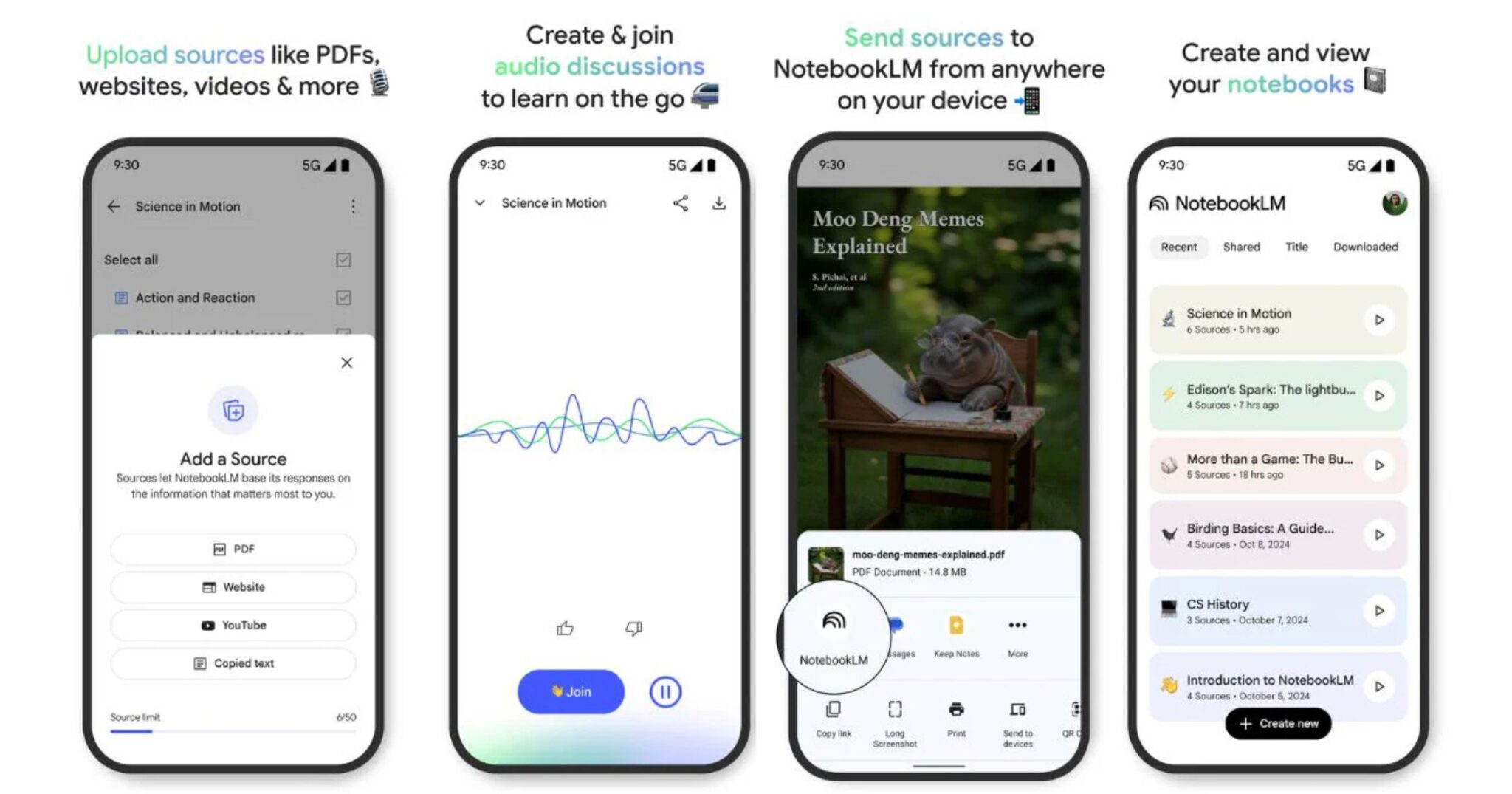NotebookLM Is Coming to Your Pocket Soon

Google’s AI-powered research and writing assistant, NotebookLM, is finally coming to smartphones. The company recently announced via its official X (formerly Twitter) handle that its mobile app will launch in the coming weeks for both Android and iOS, and users can join the waitlist today to be among the first to access it.
NotebookLM is currently inviting users to pre-register on the Google Play Store and Apple App Store. Once the app goes live, it will auto-download for all those users who have pre-registered. Many NotebookLM users have long asked for a mobile app for Google’s research and writing tool. This move ensures early adopters can jump in as soon as the beta version becomes available.
Furthermore, the company has confirmed that the iOS version will be optimized for iPadOS, too, responding to a user who asked about tablet support. “Yes! We are building for iPad as well!” NotebookLM replied.
Why Does This Matter?
Until now, NotebookLM has primarily been a web-based tool aimed at helping users create structured, citation-based insights from long documents. The mobile app is expected to bring that same capability to a more accessible format, making it easier for students, researchers, and professionals to use the tool on the go.
While the company has not shared a specific launch date, the emphasis on “a few weeks” suggests the beta rollout is close.
Recent Update: Multilingual Audio Overviews
In addition to the app announcement, NotebookLM recently introduced multilingual support for its Audio Overview feature, which now supports over 50 languages. Audio Overviews are one of the tool’s most-used features, summarizing insights from documents in a listenable format.
The update also includes a new “Output Language” setting, allowing users to select their preferred language for audio summaries and chat responses. This setting is flexible and can be changed anytime based on user preference.
Supported languages include widely spoken options like Hindi, Turkish, and Afrikaans, expanding the tool’s global accessibility.
